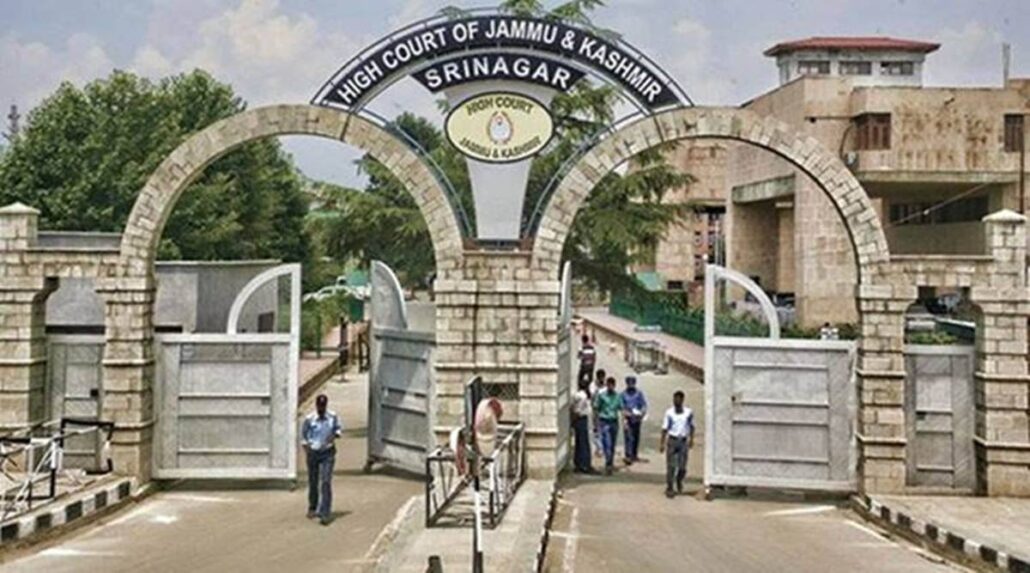
The Jammu and Kashmir High Court has nullified a preventive detention order imposed by the Shopian District Magistrate on Jaffar Ahmad Parray, a 26-year-old man.
The court’s ruling emphasizes that in a democratic nation like India, law enforcement authorities cannot arbitrarily detain and interrogate citizens without the proper legal grounds, such as the registration of a criminal case.
Justice Rahul Bharti, in issuing a Writ of Habeas Corpus and mandating Parray’s release, stressed that India, governed by the rule of law, cannot permit the police and district magistracy to detain individuals without the due process of law. Such actions would contradict India’s democratic principles and could suggest a departure towards a police state, which is inconsistent with the nation’s ethos.
The court’s decision underscores the vital importance of protecting citizens’ rights and ensuring that law enforcement agencies operate within the boundaries of the law. Upholding individual liberties and preventing arbitrary detention are essential tenets of a democratic society, and the court’s ruling reaffirms the commitment to uphold these principles.
Parray was detained under the Jammu and Kashmir Public Safety Act, 1978 by the District Magistrate of Shopian based on a dossier prepared by the Senior Superintendent of Police (SSP) Shopian which labelled him as a “hardcore OGW of LeT/HM terrorist outfits”.
The dossier, and subsequently the grounds of detention order by the District Magistrate, mentioned that Parray’s revelations during interrogation established his links with terrorists.
Parray challenged his detention through a writ petition filed before the High Court. His lawyers argued that the detention order was based on mere allegations and lacked any concrete evidence. He further contended that Parray was never informed of the reasons for his interrogation, which formed the basis for the dossier’s accusations.
Upon meticulous scrutiny of the grounds of detention, Justice Bharti pointed out that the order didn’t mention under which law the interrogation of Parray was carried out. The court observed that a citizen’s personal liberty cannot be curtailed based on mere police statements incorporated in the dossier and grounds of detention order, without any criminal case registered against the individual.
“…if the petitioner came out allegedly divulging all the adverse facts against his own self during interrogation…District Magistrate, Shopian ought to have put it on record as under which authority of law the petitioner came to be first picked up, by whom and then by whom subjected to so called interrogation so as to make alleged revelations as cited in the grounds of detention by the respondent”, Justice Bharti reasoned.
The court made a crucial observation regarding the role of the police and the magistracy and stated that the legislature, by design, has not vested the power to propose and pass preventive detention orders in the hands of the police. This separation of power ensures neutrality and prevents arbitrary detentions, the court underscored.
“Police is not let to and is not at its liberty and lathi to use/usurp State power/force in its physical manifestation against the citizenry of India as that can only be done through the agency of magistracy intervening with its independent application of mind”, the bench remarked.
The court highlighted that the interrogation mentioned in the dossier could only be legal if Parray was arrested under a registered FIR and strongly condemned the practice of picking up citizens for questioning without following proper legal procedures.
“if this court were to legitimize the preventive detention of the petitioner then that would be by first legalizing the so called interrogation of the petitioner without ever knowing from the end of the respondent No. 2 – District Magistrate, Shopian as to how the said interrogation of the petitioner took place”, Justice Bharti opined.
Criticising the authorities’ response to Parray’s representation against the detention order the court noted that the respondents, including the District Magistrate and the Home Department, remained silent on the fate of the representation.
“A representation is a very live document bearing the cry and concern of a detenu against his preventive detention meant for application of mind on the part of the District Magistrate concerned and of the Govt. to be read and responded in letter and spirit”, the bench underlined.
The Court thus concluded by quashing the detention order and directed the immediate release of Parray.




